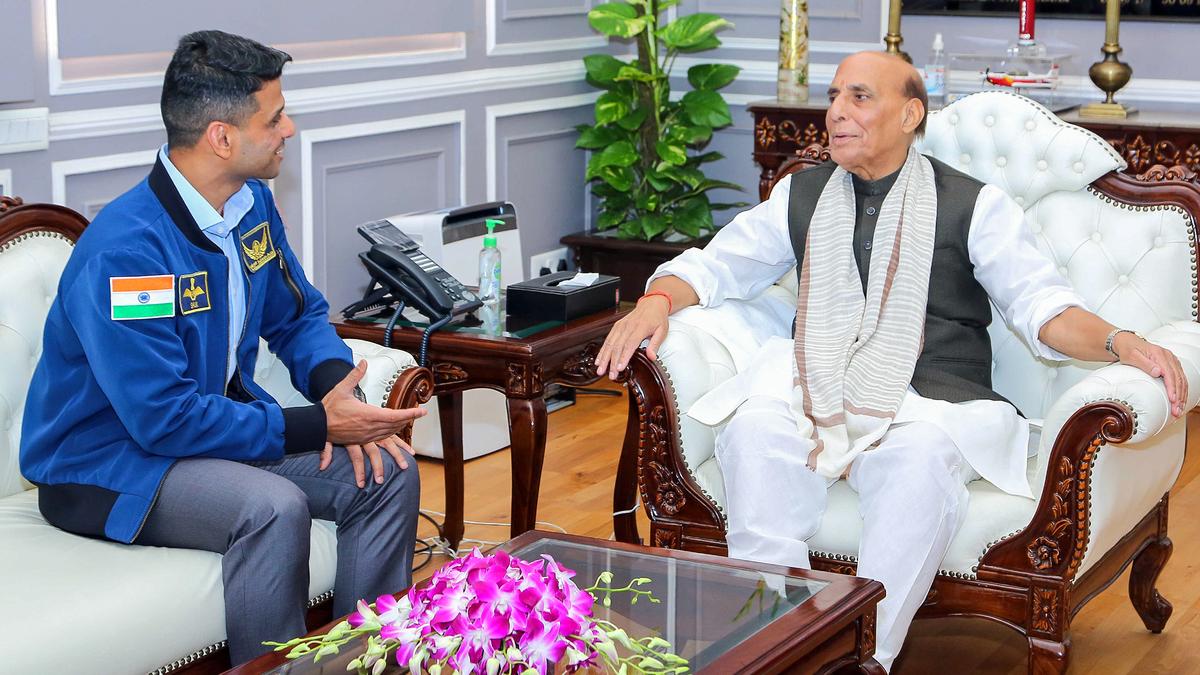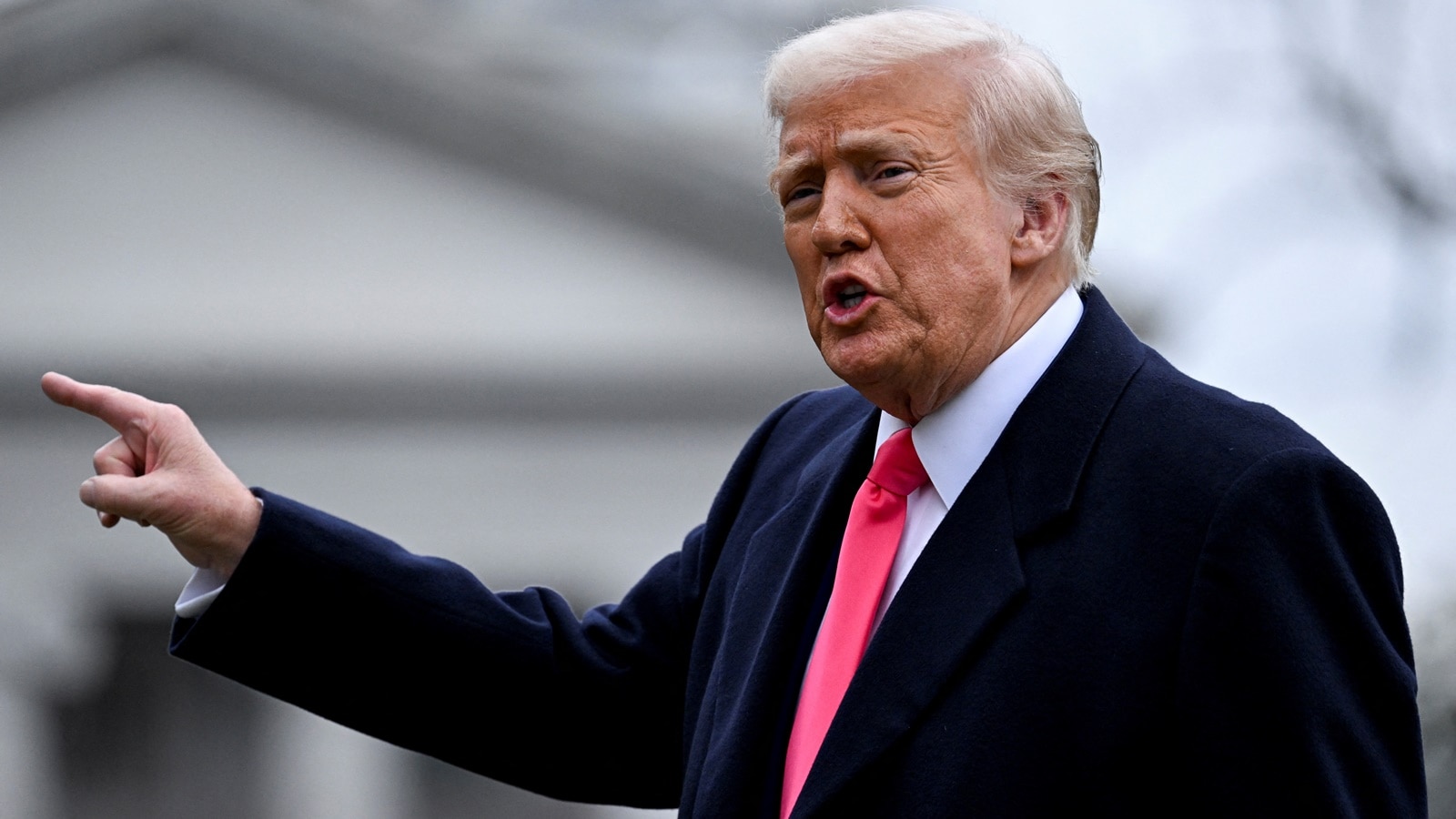Chief Justice of India B.R. Gavai on Thursday (August 21, 2025) asked the Union government if the Supreme Court is supposed to suspend its role as the “custodian of the Constitution” and sit powerless while Governors make competent State legislatures defunct and thwart the democratic will of the people by sitting on Bills for years together.
The Chief Justice, heading a Presidential Reference Bench of five judges, referred to how the Tamil Nadu Governor had kept crucial State Bills pending for almost four years without a word explaining why.
The oral observations from the Chief Justice came in response to Solicitor General Tushar Mehta’s submissions for the Union government that the top court, through its April 8 judgment in the Tamil Nadu Governor case, had encroached into the terrain of law-making and slighted high Constitutional authorities like the Governors and the President by imposing time limits on them.
Presidential Reference hearing in Supreme Court: Follow highlights on August 21, 2025
‘Stick to your turf’
Mr. Mehta said that inaction on the part of a Constitutional authority like the Governor was better addressed in the political sphere, with Chief Ministers leading delegations to the Prime Minister or the President to coax Governors into action. The Supreme Court was not the only problem-solver in the country. Every problem cannot be resolved through a judicial order, he said.
The Solicitor General said the court should stick to its rule declared in the National Judicial Appointments Commission (NJAC) judgment that each organ of governance — the legislature, executive, and judiciary — must stick to its turf. The top law officer said the country’s governance system was not hierarchical.
“We do not intend to micro-manage the government. We will never interfere. We cannot ask how a district is to be administered… But suppose, if a particular function is entrusted to the Governor, and for years together he withholds a Bill, will that also be beyond the power of judicial review of this court... When this Court has in the past set aside the very Constitutional Amendment [The Forty-second Constitutional Amendment Act of 1976], which had limited the power of judicial review as a violation of the Basic Structure, can we say this court is now powerless in the face of inaction by a Governor?” Chief Justice Gavai asked Mr. Mehta.
Also Read | Can Supreme Court’s opinion on a Presidential Reference alter its prior ruling?
Constitutional powers
The Solicitor General responded that time limits may apply to statutory authorities like a District Collector, but not to Constitutional powers like the President and Governors. He said a Governor’s position was sui generis, as They are appointed by the Union government but are also an integral part of the State legislature.
The law officer said there may be several reasons, at times political or democratic, for a Governor to delay assent to a State Bill. How could the Supreme Court step in and prescribe deadlines when none exist in the Constitution, he asked.
Justice Narasimha said State Bills would be left hanging in vacuum if no outer time limits were set for the Governor to grant assent.
‘No flood of litigation against Governors’
“Though you cannot specify a time limit, but, at the same time, there should be some way by which the process [of assenting to Bills] works. Can it be a situation when it means ‘full stop’ if the Governor chooses to not act on a Bill... there is nothing further?” Justice Narasimha asked.
Mr. Mehta responded that only “two or three States” have come to the Supreme Court complaining of their Governors. There was no flood of litigation against Governors.
To this, Justice Surya Kant observed that Governors’ decisions to act or not act varied from State to State. He asked whether the Centre was shutting off aggrieved States from approaching the court against gubernatorial inaction.
EXPLAINED | What is a Presidential reference?
Political, not judicial solutions
The Centre’s law officer maintained that the judiciary cannot tie down the President and Governors to three-month timelines as done in the April 8 judgment.
“But if there is a wrong, there must be a remedy… This court is a custodian of the Constitution,” the Chief Justice reacted. Mr. Mehta said each organ was a custodian of the Constitution in its own field.
Justice Narasimha said seeking a solution in the political sphere each time would result in a logjam.
The Solicitor replied that issues like delays in assenting to Bills were not solvable by the court. The solution lay in the political sphere where elected representatives were answerable to the people, at least every five years.
“But the Governor is not answerable to the people,” the CJI pointed out.
Also Read | 14 questions raised by President Murmu in Presidential Reference
‘Judicial restraint needed’
Referring to the April 8 judgment’s direction that pending State Bills would be deemed as approved if the President and Governors did not act within the three-month deadline, Mr. Mehta said that restraint in the exercise of judicial power, especially when it concerned high Constitutional authorities, was a facet of the separation of powers, which was a part of the basic structure of the Constitution.
The Chief Justice said that while the Bench could quite appreciate the Centre’s arguments against restricting Governors and the President to a “time-bound programme” and the grant of ‘deemed assent’, it could not accept a situation in which the Governor merely sat for four years on State Bills.
“Then what happens to the democratic set-up of the government? What happens to the will of the two-third of the majority of the legislature of a particular State? We are on the question of a Governor, however high he may be, sitting on Bills passed by a competent legislature,” Chief Justice Gavai observed.
The Solicitor’s reply was illustrative. He asked if the President could step in and decide long-pending cases in the Supreme Court.
“It cannot be that every problem has a solution only at the doors of this court, and political and democratic solutions are not solutions,” Mr. Mehta said, concluding his submissions for the Union government.



.png)
.png)
.png)
















 1 hour ago
3
1 hour ago
3









 English (US) ·
English (US) ·